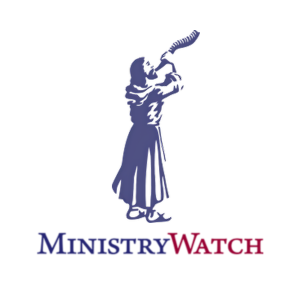
Ep. 170: Warren Smith Explains The MinistryWatch 1000 Database And The New “Donor Confidence Score”
 2022-03-01
2022-03-01
Download
Right click and do "save link as"
I’m Warren Smith and I’d like to welcome you to the MinistryWatch podcast.
On today’s mid-week “Extra” episode I’ll be doing something a bit different. Regular listeners may recall that a couple of months ago I did a Q&A episode, an episode in which I answered questions about MinistryWatch. I didn’t know how that would go, but I was surprised to discover that it was one of most listened to episodes ever.
So today I’m doing that again, except this time I’m focusing on some of the questions I’ve gotten about the MinistryWatch database, and I am also using this episode to talk with you about a new product we have here at MinistryWatch, and that’s the Donor Confidence Score.
If you are a regular user of the MinistryWatch database, you already know that we have a database of the 1000 largest Christian ministries in the country at our site. We call this the MinistryWatch 1000. The MinistryWatch 1000 database has a webpage for each ministry. And you’ll find a lot of information on those pages. We publish, for example, financial information going back five years. We calculate ratios so you can see how much and what percentage of the donations to the ministry get used for fundraising, for management costs, and for asset accumulation.
We use those ratios to calculate a Financial Efficiency Rating. Every ministry in the database is rated from 1 star (the worst) to 5 stars (the best).
We also have salaries of senior executives, and statements from the ministries themselves. We give the ministries a chance to have their say if they disagree with the way they’ve been rated.
If you’ve never used our MinistryWatch 1000 database, I really do recommend that you go there and explore it a bit. It’s got some really great stuff. And, I should add, our database is really what makes MinistryWatch different. We think the journalism we do is different. But others are doing journalism. Great organizations like WORLD Magazine and Christianity Today. But no one does that data-based journalism that we do, or has a database as extensive as ours.
The MinistryWatch 1000 database has another feature that we think is extraordinarily important, and that’s the Transparency Grade.
A ministry can get a Transparency Grade of A, C, D, or F. We use three criteria do determine the grade:
Does the ministry get an annual audit and make it available to the public?
Does the ministry release its Form 990 to the public?
Is the organization a member of the Evangelical Council for Financial Accountability?
If we can answer YES to all three questions, we give that ministry an “A” grade. If it can answer YES to 2 out of 3, it gets a “C.” If 1 out of 3, it gets a “D”. And if it can’t answer YES to any of the questions, it gets an F.
By the way, if you’re a numbers geek, like I am, you might be interested to know that about 650 of the ministries in the MinistryWatch 1000 database get an A Transparency Grade. About 175 of them get a D or F.
But one of the things we’ve become aware of is that no rating system is perfect, or complete. I’m a baseball fan, and I should mention that I’m specifically an Atlanta Braves fan. My family moved to Atlanta when I was a kid, and I’ve been a fan of the Braves through good times and bad. When I was a kid, watching the Braves, I learned that it is possible to measure the wrong things. In 1973, for example, the Braves had three players who hit more than 40 home runs: Henry Aaron, Darrell Evans, and Davey Johnson. As a team, they were near the top of the standings in home runs. But they had one of the worst records in baseball that year. If you measured the success of the Braves by looking at home runs only, you would have been measuring the wrong thing.
And this simple truth applies not just to sports teams, but also to corporations, even a rock band or dance company. Is the most successful organization the one that makes the most money, has a winning record,
view more
More Episodes
012345678910111213141516171819
Create your
podcast in
minutes
- Full-featured podcast site
- Unlimited storage and bandwidth
- Comprehensive podcast stats
- Distribute to Apple Podcasts, Spotify, and more
- Make money with your podcast
It is Free
- Privacy Policy
- Cookie Policy
- Terms of Use
- Consent Preferences
- Copyright © 2015-2024 Podbean.com





